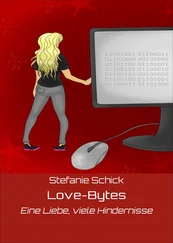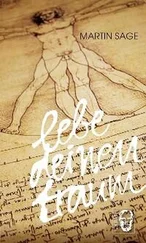"Stop and talk with me for a moment." As ever, spittle hung at the corner of Eliot's mouth.
"Alright."
So the two of them stopped to shoot the breeze there in the middle of the long hallway leading to the neutrino scanner. Kaoru leaned back against the wall, and Eliot propped his head against the back of his wheelchair. They each laughed at the other's casualness.
"I'm sure I've already told you this, but we wouldn't have arranged for your birth here had there not already been plans for the NSCS. Everything's organically interconnected. If just one element had been missing, things would have turned out entirely different."
"So it's a mere accumulation of coincidence?"
"Certainly it's coincidence that's led us to restart the Loop-to be forced to restart it. But the Loop and the real world correspond to each other on some level."
Kaoru had begun to notice that himself. It was almost as if the virtual world, cancer-ridden and frozen in time, was reaching out to move the real world, to use it.
Eliot changed to a new metaphor as he continued his explanation. "There comes a point when a child-even one not particularly precocious in science-notices that the structure of the atom resembles the structure of the solar system. The child sees the atom and its component particles as constituting their own universe, and wonders if life exists on those miniature 'planets' just as it does on ours. That's the circle of life. That's why I named it the Loop."
"I think I said something like that to my father when I was in elementary school." And to Kaoru it seemed that it wasn't just the microscopic realm that might work like that. Maybe the solar system was but an atom, and the Milky Way an aggregation of atoms, a molecule. The surrounding universe was a cell, and all of existence a huge organism. A being that held within it a smaller being, which held within it a smaller being-like a series of nested boxes. Certain ancient religions took such a view, just as they saw life cycling through a series of existences, past, present, and future.
"What do you think happens if the circle is broken? The microscopic and the macroscopic are connected, interlocking-if part of the cycle is arrested, it's going to affect the rest of it."
"If the circle gets broken… well, it just has to be reconnected."
"That's right. But not simply by going back to the beginning and doing it over. We have to overcome the calamity that has befallen the Loop, and then reconnect it."
"So what happens to the Loop's historical trajectory? Its cancer?"
"The same thing that happens to any species that runs into an evolutionary dead-end: it goes extinct. Records will remain in the Loop's memory banks, but the events will be surgically removed from the real world's history, just like we'd cut out cancer cells. The history of the Loop will be shunted onto a side road. It will start again from a new page."
It reminded Kaoru of a river carving out a landscape. Water follows the shape of the land as it flows ever downward, but sometimes it finds itself trapped, and then it swells into a pool. Even then, the water is always searching for an escape, probing weak places in the ground until it succeeds in making itself a new path. It's easy to tell where a river ran into dead ends on its way to the sea: the tale is told by a river's oddly acute angles, its occasional islands.
The Loop was like a river in that respect. Right now it was stalled, its way blocked. But left as it was to stagnate, it was bound to find a way to overspill its containment and exert a negative influence on the real world. The real world corresponded to it, after all. While it was necessary to find real-world ways of dealing with the cancer virus, it was just as necessary to change the trajectory of the Loop, its history of cancer. Until that was done, there would be no fundamental solution.
It was Kaoru's job to overcome the blockage in the Loop, to make a new way for it to flow.
Eliot spoke again. "Sometimes the world needs divine intervention. So God is born of a virgin. And reborn. All the arrangements have been made."
Kaoru realized what he was being told: he was to become a god. It didn't feel real to him. He felt too vividly the sense of being pushed along this path.
He started down the hall again, and as he walked, he thought. That Indian's life I was shown at Wayne's Rock: what was the meaning of that?
Eliot had prepared that experience for him, of course. Kaoru had yet to ask why. Kaoru's own interpretation was that it had been a dress rehearsal for death. But another possible meaning had just occurred to him.
The Indian had seen his wife and child die before his very eyes. The cruelty, the loss, and his own inability to do anything about it had been much harder to bear than thoughts of his own death. Right up until the veil of darkness closed around him, his thoughts had been ones of pity, rage, fear at having been unable to save them. Those negative images had swirled around in the blackness of Kaoru's helmet display, and after taking it off he was determined not to ever have to feel that way again, in the virtual world or the real one. The Indian's story was not one of a man who had sacrificed his life for those of his wife and daughter. It was incomparably worse than that. It was the story of a man who'd been forced to look on helplessly while they perished.
Why was it necessary for me to see that - to experience it?
In view of subsequent events, the experience's effect on him seemed to accord with Eliot's plan. Kaoru's desire to never go through that again motivated his decision to sacrifice himself to save his loved ones. But now what planted itself in Kaoru was the idea that he'd been manipulated, trapped, into doing just what Eliot wanted him to.
He strode down the corridor with profoundly mixed emotions. Eliot chased him in his wheelchair.
"Don't you wish to make a phone call?"
Kaoru stopped. "A phone call?"
"Yes. Is there no one you wish to speak to?"
He'd already spoken to his father, not long before. He would have liked to hear his mother's voice, but he didn't know what he'd say to her. How was he supposed to explain what he was about to do? She'd lose it for sure.
Reiko. There was nobody else he could talk to.
Eliot showed Kaoru into a small room off the hallway and handed him a telephone receiver.
Kaoru dialled, praying she'd be in. Eliot gestured wordlessly to a monitor, as if to ask, Would you like video? Kaoru refused the offer. There was no need to make it a video-phone call. He had the feeling that hearing her voice alone, with no extraneous information, would better allow him to hold on to the memory.
A connection. "Hello?"
First contact with Reiko's soft voice had the unexpected effect of reducing Kaoru to tears.
Waves of emotion buffeted him. Memories overcame him, aural and visual. It was an explosion, triggered by her voice. He couldn't control himself.
"Hello? Hello?"
Kaoru realized he never should have called her.
The hallway ended at a black door. This was where Kaoru said goodbye to Eliot.
Eliot held out a gargantuan hand for Kaoru to shake. Kaoru returned his grasp, although not very strongly. The last words he'd exchanged with Reiko still occupied his brain-his heart had been shattered into a thousand pieces-his gaze was elsewhere.
"I seem to have lived too long."
Kaoru snapped back to reality. He looked down at Eliot and saw a man who had, indeed, grown too old for his own good. A man who had a precise grasp of how much longer he had to live.
I'll be following you eventually, he seemed to want to say, but in fact they were headed to different places altogether. Eliot would never go where Kaoru was about to.
Читать дальше
Конец ознакомительного отрывка
Купить книгу
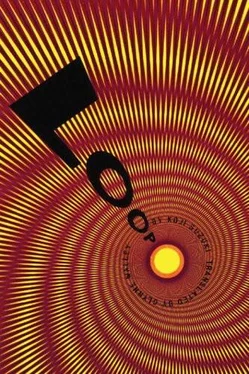
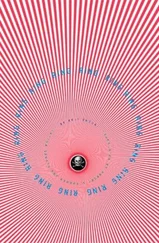

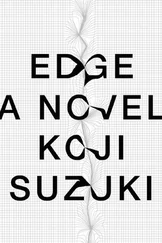

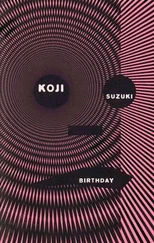
![Yuriy Ktitorov - Sasha [Love]. Part 1](/books/459553/yuriy-ktitorov-sasha-love-part-1-thumb.webp)
